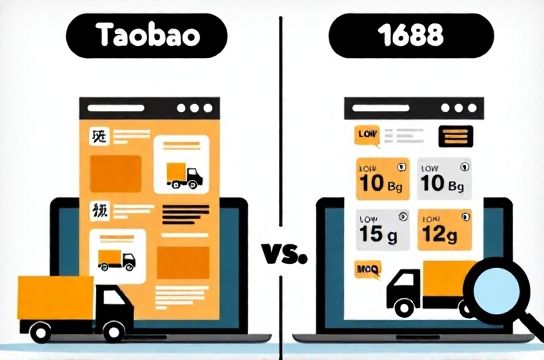Taobao vs. 1688: Which Is Better for Bulk Purchases from China?
- 时间:
- 浏览:69
- 来源:OrientDeck
So you're thinking about buying stuff in bulk from China? Smart move. But here's the real question: Taobao or 1688—which one actually saves you more cash and hassle? Let’s cut through the noise and break it down like a pro.

Both platforms are owned by Alibaba, but they serve totally different crowds. Taobao is like China’s Amazon—geared toward regular shoppers. 1688, on the other hand, is the behind-the-scenes beast where wholesalers and factories dump inventory at rock-bottom prices. So if you're serious about bulk, 1688 might be your golden ticket.
Price & Minimum Order Quantity (MOQ)
This is where things get juicy. On Taobao, you’ll often see cool products—but try buying 100 units? Good luck. Most sellers want small quantities, and prices don’t drop much per unit. 1688? That’s where MOQs start as low as 2–5 pieces, and unit costs can be 30–60% lower than Taobao.
| Factor | Taobao | 1688 |
|---|---|---|
| Avg. Unit Price (USD) | $3.50 | $1.80 |
| Typical MOQ | 1–2 units | 5–50+ units |
| Wholesale Focus | No | Yes |
| Language Support | English available | Chinese only |
| Shipping to Global | Limited | Rarely direct |
As you can see, 1688 wins on price and volume—but there’s a catch: it’s all in Chinese. No English interface, no customer support in English. If you don’t speak Mandarin, you’ll need help—a sourcing agent or translation tool.
User Experience & Accessibility
Taobao’s app and website are sleek, intuitive, and even have an English version. You can use it with zero knowledge of Chinese. 1688? Not so much. The layout is clunky, packed with jargon, and built for domestic buyers. Even finding a seller’s contact info takes detective work.
But here’s a pro tip: many 1688 suppliers also list on Alibaba.com, which is English-friendly and designed for international trade. So if you want wholesale pricing without the language headache, Alibaba might be a better middle ground.
Quality & Trust
Both platforms let you chat with sellers, check reviews, and verify business licenses. But 1688 has more factory-direct listings, meaning fewer middlemen. Fewer middlemen = lower prices and potentially better quality control… if you do your homework.
On Taobao, you’re more likely dealing with resellers who markup prices. On 1688, you might score a direct deal with a Guangdong-based manufacturer pumping out 10,000 units a month.
Logistics & Shipping
Neither platform ships globally by default. With Taobao, you can use forwarders (like Superbuy or Pandabuy), but shipping + service fees add up. 1688 usually requires a China-based agent to handle pickup, consolidation, and international shipping.
Bottom line: expect to pay extra either way. But because 1688 items are cheaper upfront, you still come out ahead—even after logistics.
Final Verdict: Who Should Use What?
- Use Taobao if you're testing products, buying samples, or ordering small batches. It’s user-friendly and great for beginners.
- Use 1688 if you're serious about scaling, want the lowest possible cost, and can handle the language/logistics grind—or work with an agent.
Want the best of both worlds? Start with Taobao to test demand, then switch to 1688 (or Alibaba) for bulk orders.
So, which platform wins? For pure bulk power, 1688 takes the crown—just come prepared.